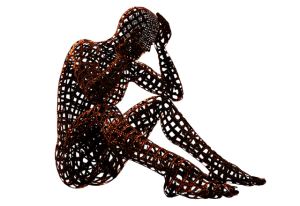alongerlife
 The reproductive organs play a crucial role in the aging process, as well as being important causes of death. Cancer of the prostate and uterus are among the main premature killers of humans. Once we can do without these reproductive organs, a great deal of unwanted suffering and death will be prevented. So we must strive to make the reproductive organs as superfluous as the appendix or hymen are now.
The reproductive organs play a crucial role in the aging process, as well as being important causes of death. Cancer of the prostate and uterus are among the main premature killers of humans. Once we can do without these reproductive organs, a great deal of unwanted suffering and death will be prevented. So we must strive to make the reproductive organs as superfluous as the appendix or hymen are now.
A longer life:
Aging itself is conversely related to reproductive activity. Species in which the individuals live short lives are characterized by high reproductive activity, i.e. frequent fertilization and short gestation, so that a large number of offspring are produced to offset massive loss of newborn life. By contrast, species that are less concerned with reproduction live longer. They can afford to have few offspring that all survive. Humans can probably extend their lifespan considerably by freeing themselves from the burden of reproduction.
A longer life: reproduction outside the human body
Before humans can be reproduced outside the female body, extensive research will have been done into embryonic development and the mechanism of gestation. This research is now taking place, albeit under restrictive conditions. One day in the near future there will be sufficient know-how to produce a human baby outside the human uterus. The study of genetic transformation goes on and the ability to adapt the qualities of new-born babies will increase in important ways. One quality will be that of longevity, i.e. a longer and healthier life due to the postponement of aging and dying. Ultimately the genetic organs will become redundant, and a new species of humans – let’s call them numans – will inherit the earth.
A longer life: Numans
Numans will no longer be sexually contrasted as males and females are now. Mutating out the sexual organs will result in less gender-specific characteristics. The typical female and male figures will merge into one. Gone will be the female’s heavy hips and large breasts, gone the male’s penis and scrotum. Instead the numan will have a compact body with small breasts, less hair, no penis or vagina, but only a love button. They will have much more sex than we, but they will not call it so, because there will no longer be sexes, and the pleasure of loving freely will surpass any pleasure that now accompanies the aggressive, noisy, unintimate and often distasteful battle between male and female which we call sex. As aging slows and death retreats, numans can come to live healthy and active lives for at least 150 years within the next century. Many other factors will have to be taken into consideration, such as population numbers, combating disease, the emancipation of women, and a host of other social, economic, political, psychological, moral, and educational questions.
